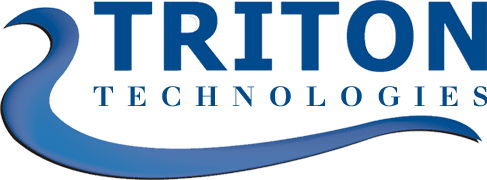Technology-based learning has become a cornerstone of modern education, profoundly impacting how teachers teach and students learn. The integration of advanced tools and strategies into educational settings has revolutionized traditional classrooms, offering a more dynamic, interactive, and personalized learning experience. This article explores the various dimensions of technology-based learning, emphasizing how teaching with technology, utilizing technology for teaching and learning, and implementing effective technology teaching strategies are reshaping education.
The Rise of Technology-Based Learning
Technology-based learning encompasses a wide range of educational practices that use digital tools to enhance the learning experience. This approach leverages the power of the internet, software applications, and digital devices to create an engaging and flexible educational environment. The rise of technology in education is driven by several factors, including the widespread availability of digital devices, the need for personalized learning, and the desire to prepare students for a technologically advanced world.
Teaching with Technology
Teaching with technology involves incorporating digital tools into the instructional process to enhance the delivery of content and improve student engagement. This can include the use of interactive whiteboards, online learning platforms, educational software, and multimedia resources. By integrating these tools, teachers can create more engaging and interactive lessons that cater to diverse learning styles.
One of the key benefits of teaching with technology is the ability to present information in multiple formats. For instance, videos, animations, and interactive simulations can make complex concepts more understandable and memorable. Additionally, technology allows for real-time feedback and assessment, enabling teachers to quickly identify and address areas where students may be struggling.
Technology for Teaching and Learning
The use of technology for teaching and learning extends beyond the classroom, providing opportunities for continuous education and skill development. Online learning platforms, such as Khan Academy, Coursera, and edX, offer a vast array of courses that students can access anytime, anywhere. These platforms provide flexibility, allowing learners to progress at their own pace and revisit material as needed.
Moreover, technology facilitates collaborative learning. Tools like Google Classroom, Microsoft Teams, and Zoom enable students to work together on projects, participate in discussions, and share resources regardless of their physical location. This fosters a sense of community and collaboration, essential skills for the modern workplace.
Explore our Managed Service Offerings
Worcester’s Top Managed Service Provider
Technology Teaching Strategies
To effectively integrate technology into education, teachers must adopt appropriate technology teaching strategies. These strategies involve selecting the right tools, designing engaging activities, and ensuring that technology enhances rather than distracts from the learning process. Some effective technology teaching strategies include:
Blended Learning
This approach combines traditional face-to-face instruction with online learning activities. It allows teachers to use digital tools to supplement and enhance classroom teaching, providing a more flexible and personalized learning experience.
Flipped Classroom
In a flipped classroom, students are introduced to new content at home via videos or online resources, while classroom time is dedicated to hands-on activities and discussions. This model encourages active learning and allows teachers to provide more individualized support.
Gamification
Incorporating game elements into learning activities can increase student motivation and engagement. Educational games, quizzes, and interactive simulations make learning fun and competitive, encouraging students to participate actively.
Adaptive Learning
Adaptive learning technologies use data and analytics to personalize the learning experience. These tools adjust the content and pace based on the individual student’s performance, ensuring that each learner receives instruction tailored to their needs.
Project-Based Learning (PBL)
PBL involves students working on real-world projects that require critical thinking, collaboration, and problem-solving. Technology facilitates PBL by providing access to digital resources, tools for collaboration, and platforms for presenting their work.
Discover our IT Solutions for Your Industry
Worcester’s Top Managed Service Provider
Challenges and Considerations
While technology-based learning offers numerous benefits, it also presents several challenges. Ensuring equitable access to technology is a significant concern, as not all students have the same access to digital devices and high-speed internet. Schools must address this digital divide to provide all students with equal learning opportunities.
Additionally, teachers need adequate training and support to effectively integrate technology into their teaching. Professional development programs should focus on helping educators develop the skills and confidence to use digital tools effectively.
Privacy and security are also critical considerations. Schools must ensure that student data is protected and that digital tools comply with privacy regulations. Educators should be aware of the potential risks associated with using technology and take appropriate measures to safeguard student information.
The Future of Technology-Based Learning
As technology continues to evolve, its impact on education will only grow. Emerging technologies such as artificial intelligence (AI), virtual reality (VR), and augmented reality (AR) have the potential to further transform the learning experience. AI can provide more advanced adaptive learning systems, offering highly personalized instruction. VR and AR can create immersive learning environments, allowing students to explore new worlds and engage with content in innovative ways.
Moreover, the ongoing development of digital tools and resources will continue to expand the possibilities for technology-based learning. Educators will have access to an ever-growing array of applications and platforms designed to enhance teaching and learning.
How Triton Technologies Can Help
Triton Technologies is at the forefront of providing innovative solutions that enhance technology-based learning. With a focus on developing cutting-edge educational tools and resources, Triton Technologies helps schools and educators seamlessly integrate technology into their teaching strategies. Here’s how Triton Technologies can support education:
Comprehensive Learning Platforms
Triton Technologies offers robust online learning platforms that facilitate blended and flipped classroom models. These platforms provide a user-friendly interface for both teachers and students, enabling easy access to a wide range of educational resources.
Adaptive Learning Systems
Triton’s adaptive learning systems use AI to tailor educational content to individual student needs, ensuring personalized learning experiences. These systems analyze student performance and adjust the difficulty and type of content accordingly.
Professional Development
Recognizing the importance of teacher training, Triton Technologies provides comprehensive professional development programs. These programs help educators become proficient in using digital tools and integrating them effectively into their teaching practices.
Collaborative Tools
Triton Technologies offers a suite of tools designed to enhance collaboration among students and teachers. These include digital whiteboards, real-time communication platforms, and project management tools that facilitate group work and interactive learning.
Security and Privacy Solutions
Ensuring the safety and privacy of student data is a top priority. Triton Technologies provides secure platforms that comply with all relevant privacy regulations, giving schools peace of mind when using their digital tools.
Gamification and Engagement
Triton’s gamified learning applications and interactive simulations make learning engaging and enjoyable. These tools help increase student motivation and participation, making educational content more accessible and fun.
Technology-based learning represents a significant shift in the educational landscape, offering new opportunities for teaching and learning. By embracing teaching with technology, utilizing technology for teaching and learning, and implementing effective technology teaching strategies, educators can create a more engaging, personalized, and effective learning experience.
As we look to the future, the continued integration of technology in education will be essential in preparing students for the demands of a rapidly changing world. With the support of innovative solutions from companies like Triton Technologies, schools can overcome challenges and fully realize the potential of technology-based learning.
Learn About Our IT Support Services & Solutions
Worcester’s Top Managed Service Provider



